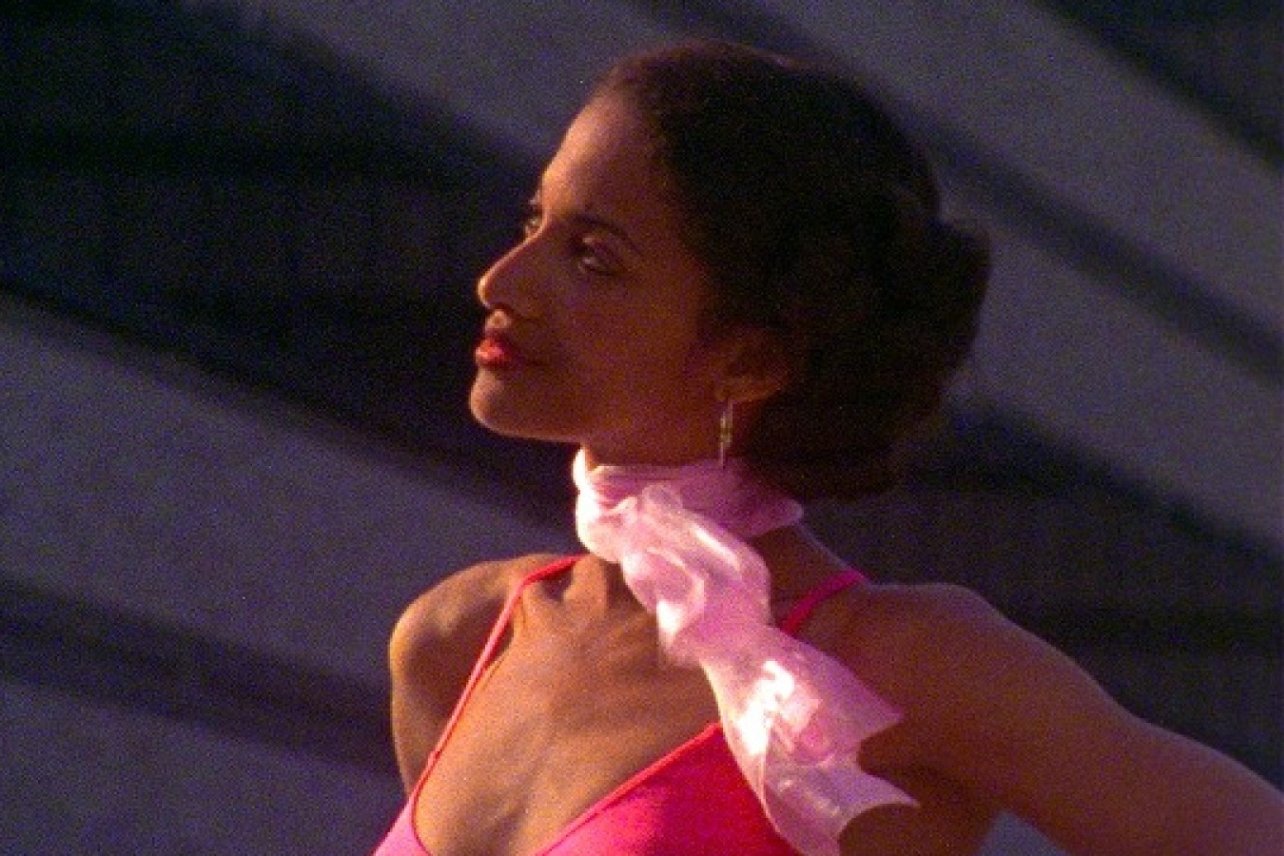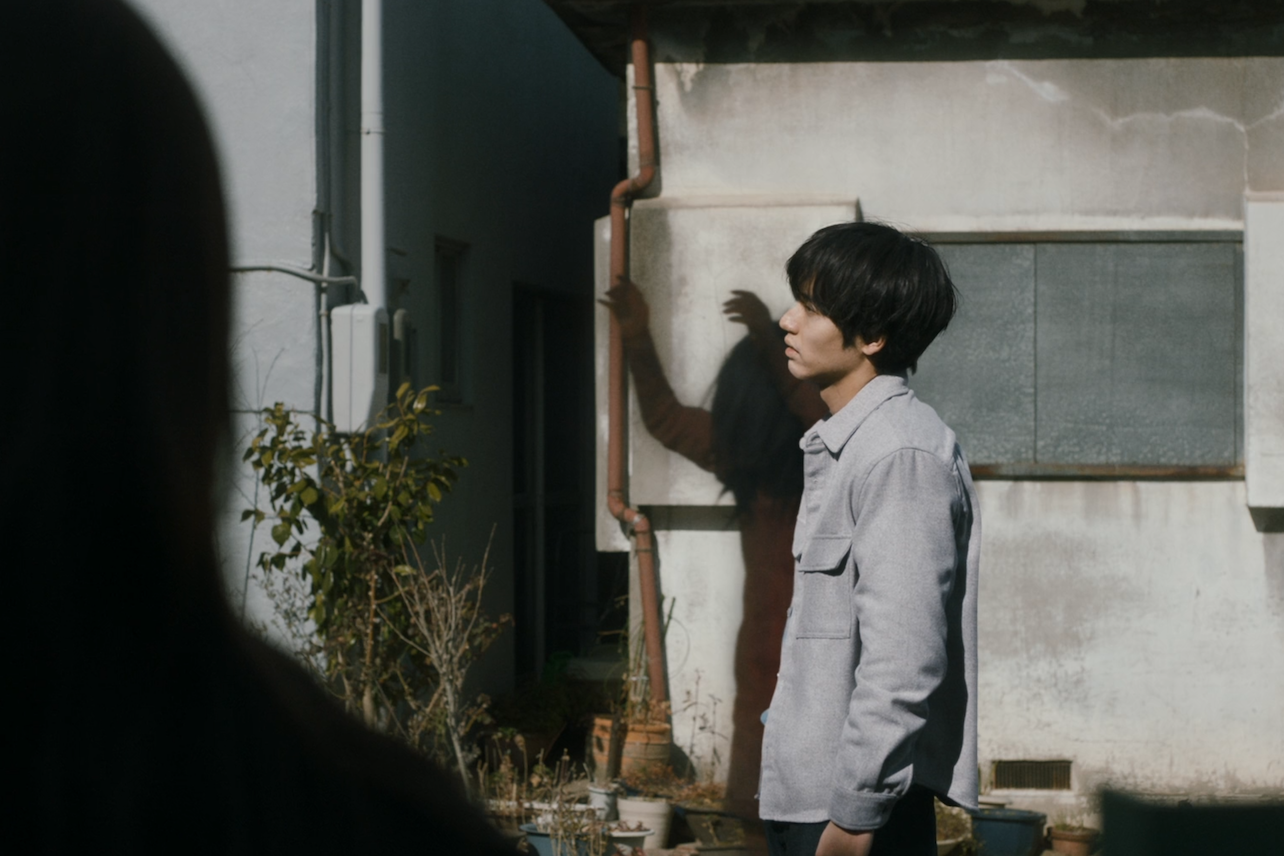Try picturing a revolution in your imagination: bricks thrown, shots fired, sirens rung, and fires sparked. Revolution reads as "loud" on paper. It's what we're taught in high school, this definition of "revolution" as a chaotic thing. If we're being fair, our educators aren't wrong for contextualizing revolution in that framework; the word tends to connote martial conflict, after all (perhaps more so here in the U.S. than other places).
But revolution isn't always a cacophony. Sometimes it's quiet, simple, ordinary verging on being mundane; sometimes it's an impassioned speech, sometimes it's a moving, vivid poem, and sometimes, it's a Black American woman directing her second feature in the 1980s, which distinguished her at the time as the first Black American woman to make a feature film in almost 60 years, contemporaneously.
The director is Kathleen Collins; the film is Losing Ground; the value is both its preservation in the National Film Registry, and on Blu-ray via Kino Lorber. The story of Sara Rogers (Seret Scott), an accomplished college professor banging away at a treatise on ecstasy while unable to secure such for herself, is self-contained, light on plot, and a rarity in Black American cinema's canon for its focus on existential pursuits rather than on institutional struggle.
Sara is in a tight spot. Her husband, Victor (Bill Gunn), has finally worked his way into success as a painter by selling one of his pieces to a museum; he wants to celebrate by renting a house in upstate New York, away from the city's bustle, so he can spend the summer further honing his art. Naturally, Sara is happy for Victor's achievement. She is also put off at his presumption that she is equally as happy to uproot her life for months, when she needs the city's academic resources — you know, libraries — to make progress in her own work, as if Victor deems her introspection and analytics less valuable than his artistic expression. She's marginalized in her marriage. She's unfulfilled in her personal and professional lives. She is unsteady and growing more so, a point of crisis given that people close to her, from Victor to her mother (Billie Allen), see her as a pillar of stability.
Losing Ground follows that meandering brief along a slice-of-life arc, shifting gradually back and forth from Sara and Victor's perspectives: she, ensconced in halls of learning and knowledge, secluded from human interaction and experience, and he, free to roam among the idyllic village landscape he's chosen for his studio, and to pour his affections on the women he encounters there, notably Celia (Martiza Rivera), a Puerto Rican lass who's about half his age.
But Collins pulls off a clever illusion in that dichotomy. Victor, liberated as he may be from the very start, never changes. He is static. The shift in his character that's most easily observed is his jealousy, which squeezes out of him like so much cream in a donut during a dinner party at the summer house, when Celia dances with his mentor, Carlos (Noberto Kerner), and Sara with Duke (Duane Jones), the suave uncle of one of her students.

In a way, Victor's concerted denial of Sara's legitimacy and value as a professional, coupled with his rank hypocrisy over her and Celia's interactions with other men, is reflective of Collins' own experiences: as a professor, as an artist, as a director and playwright, as a Black woman. "You stay in a trance, you ever notice that?" Victor tells her offhandedly. "A kind of private ecstatic trance; it's like living with a musician who sits around all day blowing his horn." His words may not strictly be intended as either an insult or a criticism, depending on how you hear them, but he speaks them so casually that interpreting them as harmless feels foolish: they cut right to Sara's concerns, that "nothing I do leads to ecstasy." She is order and composure made flesh. There's nothing ruffled about her, even when her misgivings about Victor's lechery linger at her surface.
Collins, on paper, sounds much less buttoned up than Sara, but nonetheless recognizes how a person as fastened as Sara suffers by their self-repression. If Victor is able to just "be" throughout Losing Ground's 80 minute running time, Sara learns how to be instead, bit by bit shedding emblems of her inhibition both in action and in fashion. At the start of the film, she is armored in a crisp, angular white blouse; by the end, she's swapped that attire for a flamingo-pink slip, a half-hip skirt, stockings, and a revolver. Admittedly these are the garments of her role in a film-within-the-film, an avant garde interpretation of the folk ballad "Frankie and Johnny" directed by Duke's nephew, but the transformation she undergoes remains meaningful regardless: we can scarcely imagine the Sara we meet in Losing Ground's opening scene starring in a student project, and yet there she is, the Sara we part ways with at the end, triumphant at last in finding the ecstasy, the personal gratification, she has long sought.
There are no race politics baked into the film's narrative, at least not those we associate with Black women-led productions made today, which almost exclusively are embedded in one era or form of systemic American oppression or another: Hidden Figures, Harriet, The Help, Pariah, Precious, Dreamgirls, Passing. Several of these films are quite good, of course, and space should be held for new ones made in their ballparks. All the same, it's a disgrace that Collins' formulation of "Black women-led production" not only came perilously close to oblivion — without the efforts of her daughter Nina, all of her work may have disappeared from the record entirely — but remains broadly démodé even in 2025. Films like Channing Godfrey Peoples' Miss Juneteenth, and Rachael Abigail Holder's Love, Brooklyn, come around only ever so often; to honor Collins' legacy, take care to encourage more artists like Peoples and Holder to make more movies like theirs — and like Collins'.






